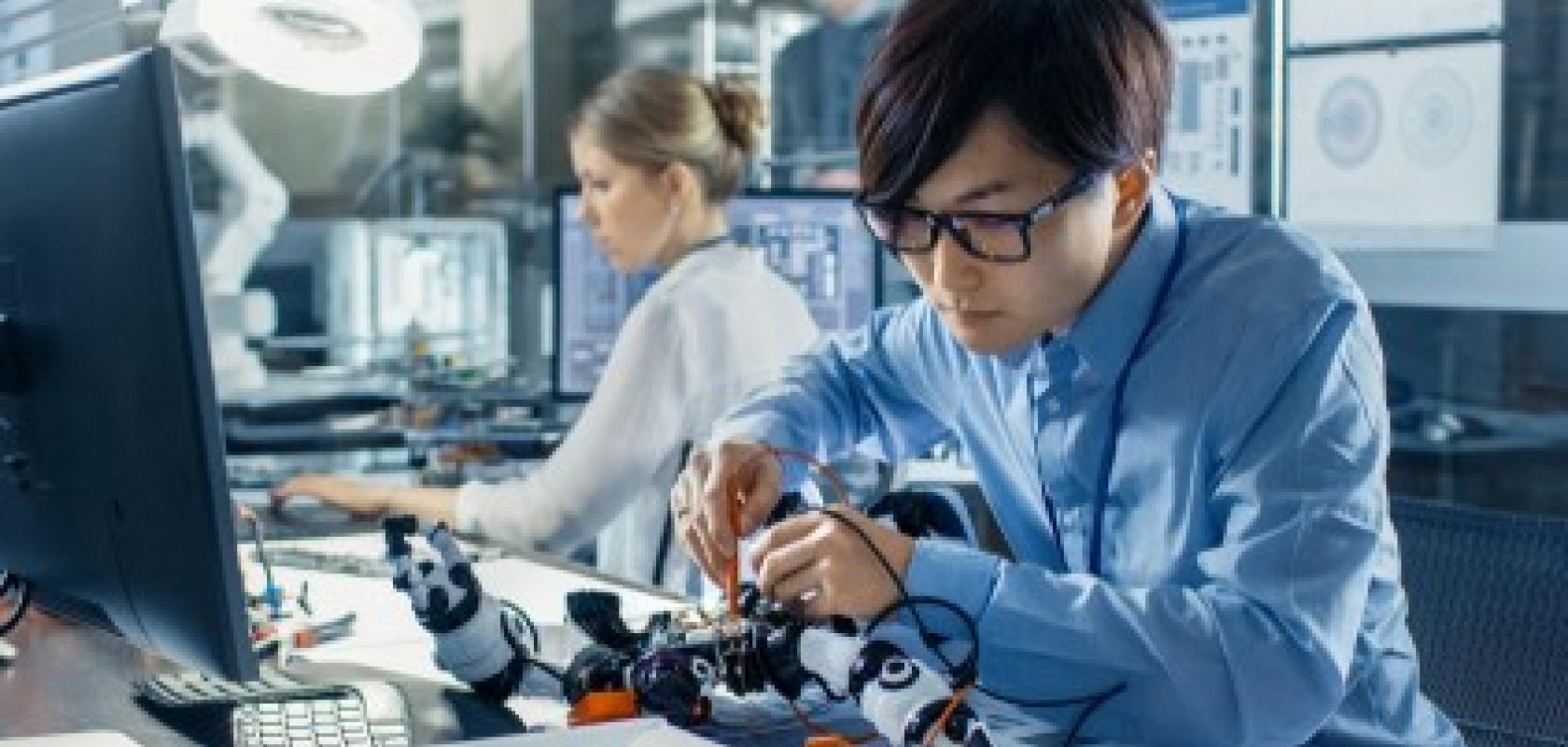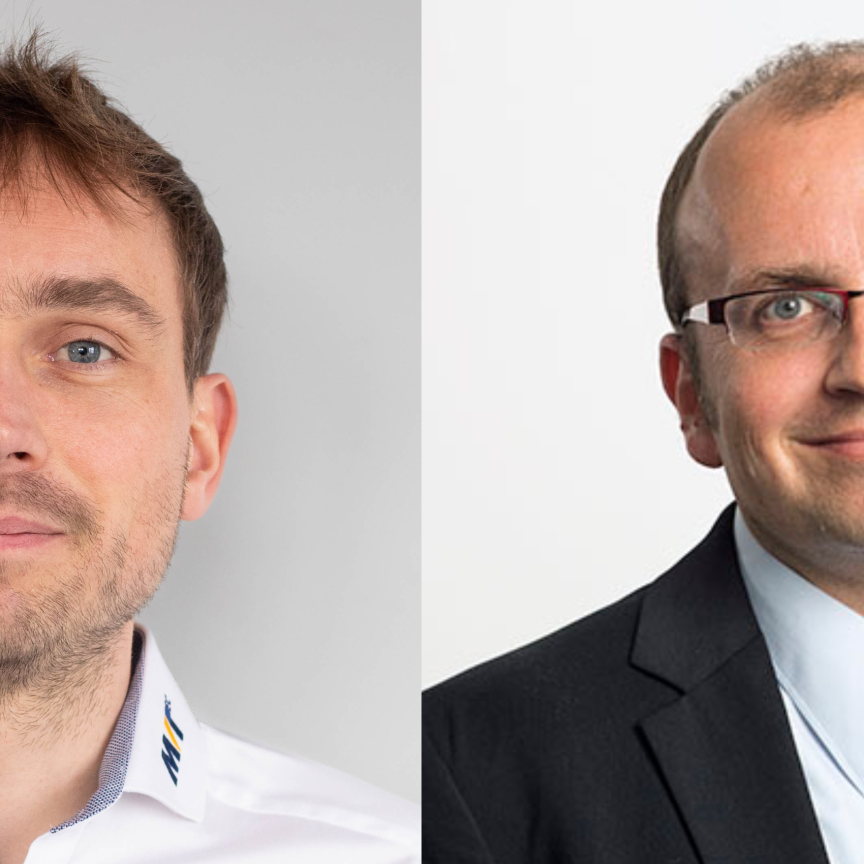As a new academic year begins, Greg Blackman finds out what students taking image processing courses in two universities have in store
Students are returning to what inevitably will be a very different university experience this year. Video lectures and virtual tutorials are the order of the day, rolling on from what was arranged earlier in the year in the summer term.
Two higher education institutes in Germany, Darmstadt University of Applied Sciences and Karlsruhe Institute of Technology (KIT), have distance learning methods in place in preparation for the new term, which have been successful so far.
Professor Dr Michael Heizmann, director of the Institute of Industrial Information Technology (IIIT) at KIT, said: 'Our observations from the past summer semester and the students' feedback show that they get along quite well with online teaching.' Professor Dr Christoph Heckenkamp at Darmstadt University of Applied Sciences, added that 'the transition to distance learning was quite smooth for our study programme.'
Both teach courses that have elements of or that are dedicated to image processing and automated inspection; the IIIT has courses including image processing, production measurement technology, and information technology in industrial automation, while Darmstadt University of Applied Sciences offers bachelor and master degrees in optical engineering and image processing.
There are hurdles to overcome, however, for universities offering engineering subjects, not least when it comes to working in the laboratory. As an engineering discipline, automated inspection involves building things, often with expensive equipment.
Heckenkamp said that one of the main elements of the optical engineering course curriculum at his university is to provide hands-on experience in the laboratory. Students taking the course at Darmstadt University of Applied Sciences work in groups of two on quite sophisticated setups, he explained, to produce reliable data and write reports covering demanding aspects of data analysis, among other things. This is to prepare them for what they face when working in industry, he said.
The university has had to break up groups of two and limit the number of students working in laboratories – Heckenkamp has had to reduce his courses' laboratory sessions to the absolute minimum. He said: 'Should this situation persist for, say, until the middle of next year, it will be difficult to cover up these deficits for a significant percentage of our students, maybe 20 per cent or so, just to give a wild guess.'
This is particularly so for students in their final year of the optical engineering and image processing study programme, where important topics are covered mainly through laboratory assignments.
Heckenkamp said: 'We have to find a way to go back to the labs in teaching; otherwise, we will end up with students lacking significant qualifications in hands-on experience, in how to tackle real-world problems in machine vision, and without having learned to work in small teams.'
The university has found a way around lab restrictions for its first year students by giving them their own camera, lens and a student edition of MVTec's Hdevelop software. The students are set laboratory assignments to work on at home with the equipment. 'It was quite impressive to see what can be achieved with such simple equipment, a desk lamp and a MacGyver-style attitude,' Heckenkamp said. 'Unfortunately, this doesn't work when you need a laser scanner, a telecentric lens, line scan cameras, and robotics.'
Heizmann made the point that networking among students will suffer from restrictions, especially for students starting this semester.
That said, both Heizmann and Heckenkamp are reasonably optimistic about how their respective courses are operating. Heckenkamp said that lectures, seminars and tutorials are no problem at all, and that some features of distance learning are beneficial and will be kept as a standard format in the future.
With regards to how universities are collaborating with industry, there are mixed reports. Collaborative imaging projects between companies and Darmstadt University of Applied Sciences have only seen slight delays, according to Heckenkamp. It is the same at IIIT, with projects that are already running not really affected. However, Heizmann said that he could imagine that the initiation of new projects might suffer from contact restrictions. Also, such projects are often agreed at conferences and trade fairs, which are not taking place at the moment.
Heckenkamp said that he hasn't had many problems in getting companies to provide internships for students at Darmstadt University of Applied Sciences. Students began looking for placements in industry for the winter term in June, and the university's long-standing partners in the machine vision industry were generally quick to reply. He said that small companies are agile and have supported students so far, which, he feels, will carry weight in the student community – 'students are very well connected, and that will get around,' he said.
However, Heizmann said that student placement programmes in industry have been affected in his experience. 'I know of companies that currently do not accept any students at all. This is definitely bad for both the students and the companies, and I would like to see creative solutions found, such as a home office [for the student] using company hardware and support via video conferencing.'
Darmstadt University of Applied Sciences' winter term courses will start at the beginning of November, instead of October, and everything with the exception of laboratory assignments will be delivered via distance learning.
'R&D will not be affected; bachelor and master theses will not be affected, neither in industry nor in our labs; internships in industry will not be affected,' Heckenkamp said.
'I'm quite optimistic that we won't really feel an impact [from the pandemic], but some students may suffer from a year without the opportunity to properly work on laboratory assignments,' he concluded.
Write for us
Are you a student taking an image processing course or doing a placement in industry? Tell us about your experience: greg.blackman@europascience.com


